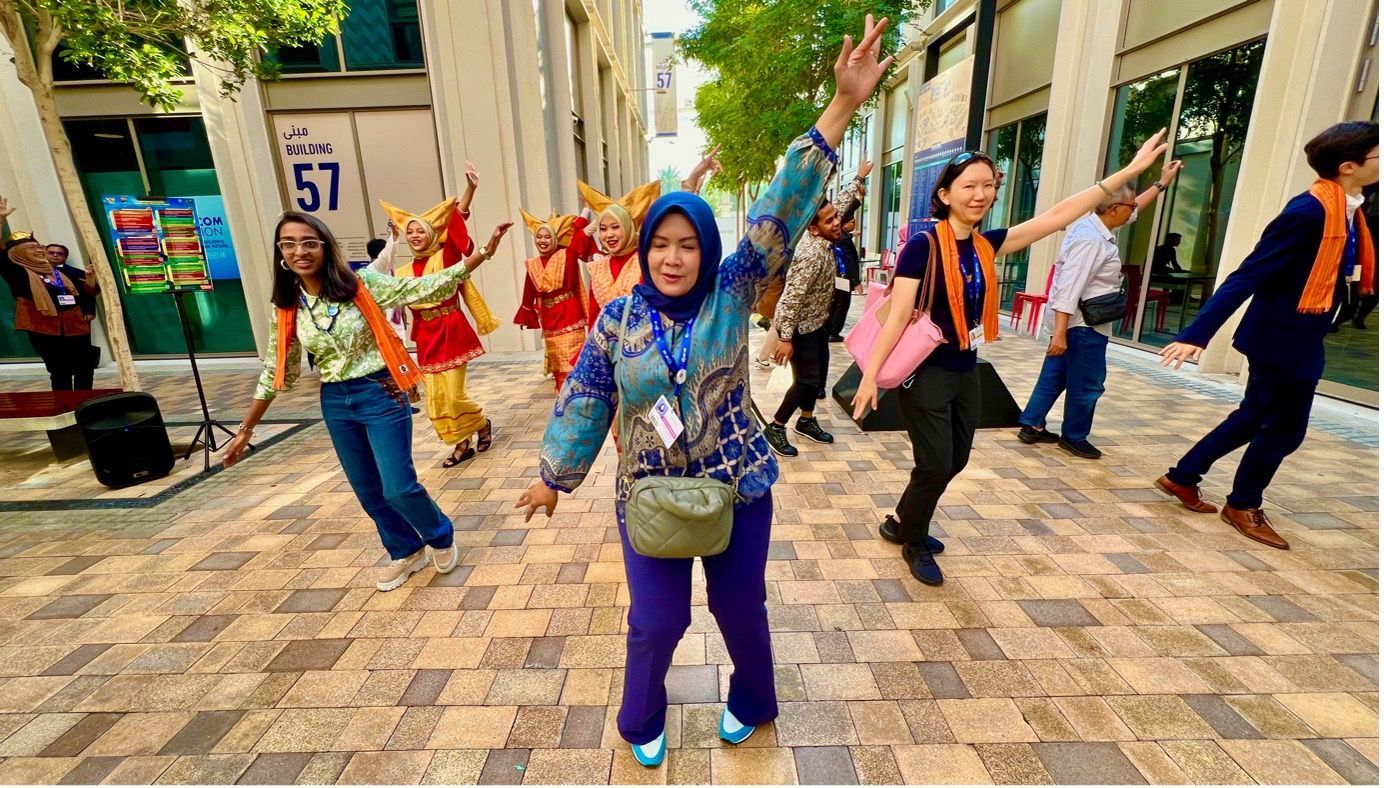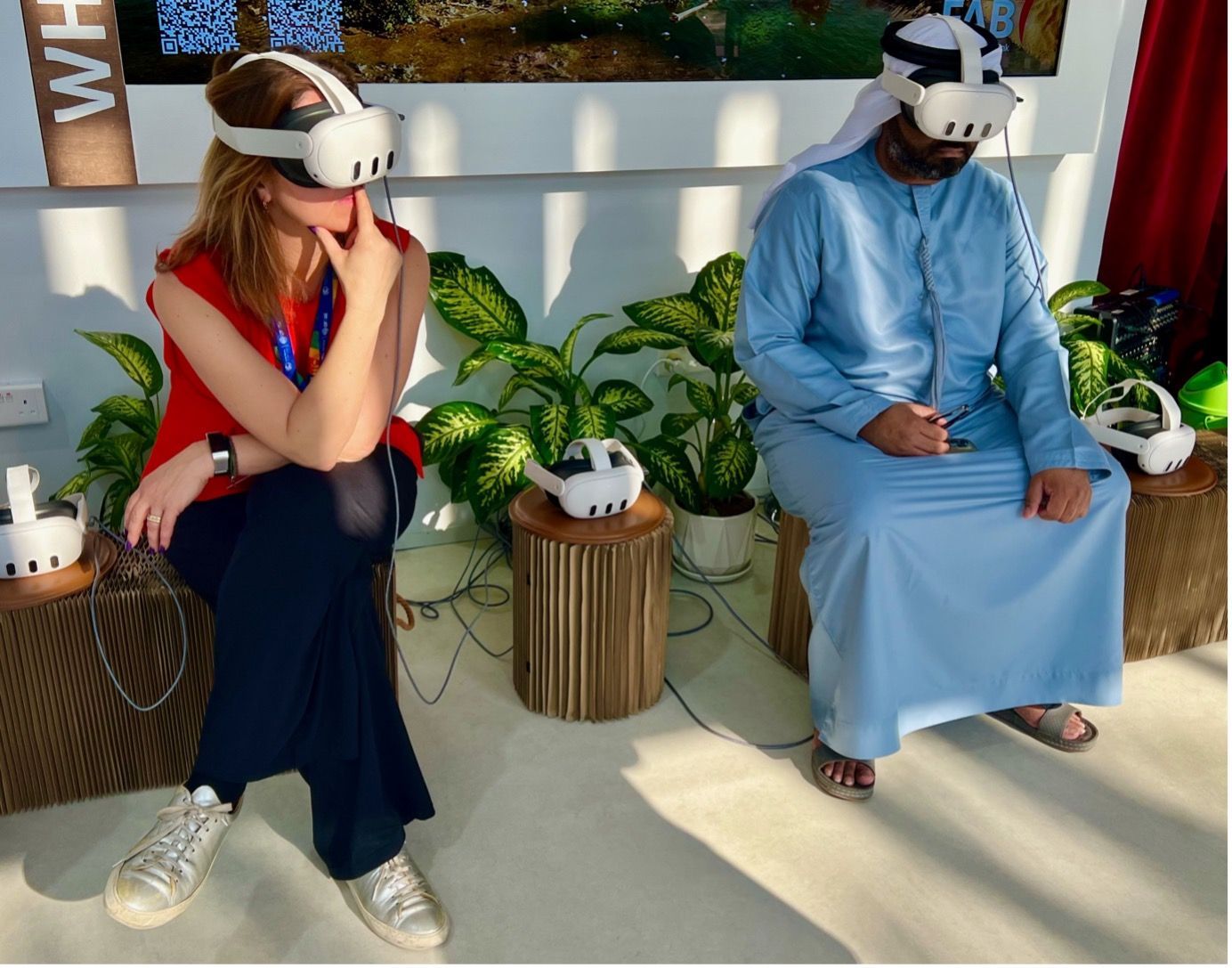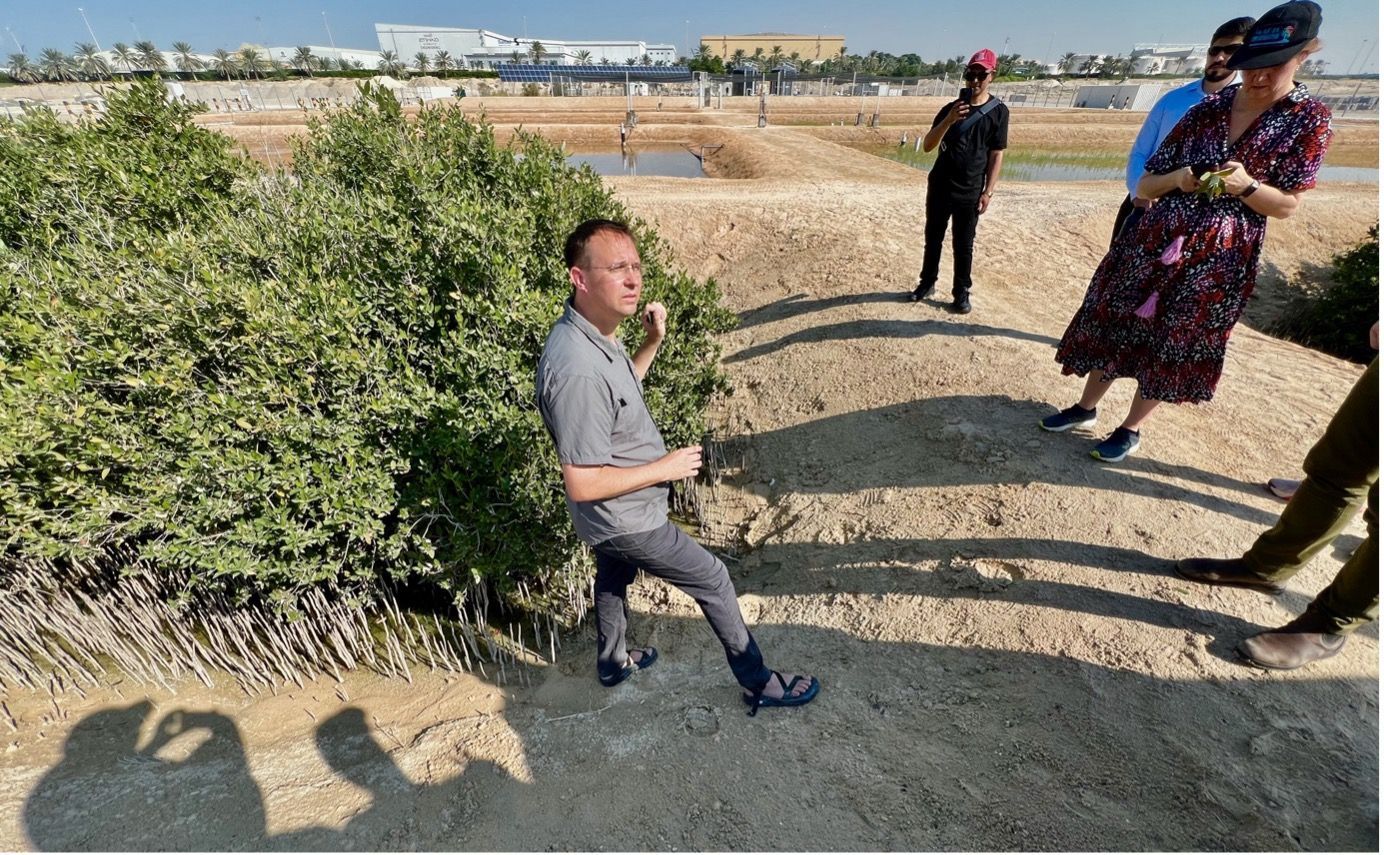COP28: Diving for Tomorrow's Pearls
John Elkington, Founder and Chief Pollinator at Volans and ISSP Sustainability Hall of Fame Honoree, shares an on-the-ground view into COP28 — and the implications of its final declaration.
Long before I first visited Abu Dhabi and Dubai over a decade ago, I knew the story of the collapse of the region’s pearl industry almost a century before. Japan’s discovery of how to grow cultured pearls led to the implosion of the region’s pearl diving sector, an economic mainstay of the so-called Trucial States. One result: extreme poverty. Then, happily for what would later become the United Arab Emirates, or UAE, a floating oil drilling platform was moored over the Umm Shaif pearl bed and, in 1958, struck oil.
By 2021, the UAE would rank as the world’s seventh largest producer of liquid fuels. Cue horror among activists when the UAE was picked to host this year’s COP28 climate summit—and, worse, when it emerged that the conference president would be the head of the country’s leading oil company, ADNOC, or the Abu Dhabi National Oil Company. A fox, as our American friends might say, in charge of the chicken house.
So much has now been said about Dr. Sultan Ahmed Al Jaber that further comment is redundant but as our flight touched down at Dubai’s international airport, and although I have long had ferocious antibodies to the COP process, I was feeling decidedly upbeat.
Partly this was because we had already heard announcements by governments, businesses, investors, and philanthropists that over $57 billion would be invested across the climate agenda. Even more striking, the once-unmentionable concept of “loss and damage” was now on the agenda. Indeed, a breakthrough deal was launched to help the world’s poorest and most vulnerable countries cope with the mounting costs imposed by climate-induced weather disasters — and by slower-evolving disasters caused by sea level rise, melting glaciers, and ocean acidification.
When the deal was announced on the first day of the summit, it won a standing ovation.
Next, 118 countries committed to triple total investment in renewable energy infrastructure and to double energy efficiency funding, both by 2030. At least as important, they agreed to make the principle of energy efficiency as the "first fuel” the very heart of policymaking, planning, and major investment decisions. There seemed to be real momentum behind the change agenda.
As at Glasgow’s COP26 in 2021, I was travelling with Volans CEO Louise Kjellerup Roper, our token Dane. But when we arrived at the giant Expo 2020 site on the outskirts of Dubai, we did so as honorary Finns — this time with access to both the inner Blue and outer Green Zones. We were there at the invitation of Finland’s largest company, Neste — where, over several years, we have helped evolve their advisory council on sustainability and new markets.
I was due to speak at a Neste event in the Finnish Pavilion, entitled “Let’s Fuel Change: Accelerating Sustainable Mobility.” Successive panels drew in key players from the aviation sector, including Airbus, Boeing, and the Smart Freight Centre — which Finnish colleagues delightfully persisted in calling the “Smart Fright Centre.”
Later, we joined the high-spirited celebration of Finnish Independence Day, though there were other reasons why COP28 boosted our own spirits. One was the sheer number of people — known and unknown — we bumped into while traversing the site. The sense of a global community coming together to connect and celebrate each other was palpable.
Indeed, serendipity went into overdrive. One morning, Louise and I were headed for a meeting with Dubai Holding (Dubai ruler Sheikh Mohammed bin Rashid al-Maktoum's personal investment portfolio, where I am joining a new advisory board), when we heard singing. Turning a corner, we came upon an Indonesian dance group performing to foot-tapping music — conjuring smiles on the faces of all within hearing. Soul-stirring.

Louise and I were also at COP28 to speak at several events organised in the Climate Finance Pavilion. The host was another client, First Abu Dhabi Bank, or FAB. Louise chaired a panel on the future of sustainable aviation fuel, or SAF, while I took part in a “fireside chat” with FAB Chief Sustainability Officer, Shargiil Bashir. Among other things, we discussed our new joint white paper on greenwashing and greenhushing. At the end of the session, he confided with the audience that I hadn’t asked a single question he had prepared for — but perhaps that’s the nature of this rapidly mutating agenda of ours.
The scale of our mutually reinforcing challenges was underscored by a virtual reality experience just around the corner in the Climate Finance Pavilion. Here schoolchildren and CEOs alike were immersed in a 360-degree vision of disrupted futures, kicking off with massive sandstorms and a Dubai hollowed out by forced migration, palaces reduced to flooded ruins, through to an increasingly upbeat world with vast undersea renewable energy generators gently turning as schools of fish and dolphins swam above restored coral reefs.

Then our plans to return to London were themselves disrupted. FAB Group CEO Hana Al Rostamani asked if I would travel south to Abu Dhabi for a major event where FAB was hosting 100 business leaders. I happily agreed and found myself speaking in front of the colorfully illuminated Cultural Foundation, with a brilliant Jupiter high overhead.
On the heels of FAB Vice Chairman H.E. Sheikh Mohamed bin Saif Al Nahyan and Hana Al Rostamani, I began by commending the UAE for its handling of the COP28 logistics—but noted that the real test would be the final agreement, and the extent to which it acknowledged the need for a fossil fuels phase-out. As a result, I argued, our global economy stands on the brink of profound disruption, whatever the impact of COP28 turns out to be.
As with the collapse of the pearling industry in the twentieth century, the twenty-first will see the accelerating replacement of fossil fuels with radically different energy economies. The UAE has long accepted this fact, one reason why it is has invested in the innovation platform of Masdar City. Still struggling to fulfil its original promise, Masdar’s early years were shaped by none other than founding CEO Dr Sultan Ahmed Al Jaber.
En route to Abu Dhabi, we decided to visit a fascinating example of the UAE’s emerging sustainability-focused economy: a fish-, samphire- and mangrove-producing aquaculture facility prototyping novel forms of saltwater irrigation. Knowing the history of soil salinization that dogged traditional forms of agriculture in the region, I was sceptical. But when we were shown around by Regenerative Resources CEO Neal Spackman, I was reminded of my early interest in aquaculture half a century back.
Instead, I opted for a career promoting sustainability in business and markets. Now, if the writing on COP28’s walls and hoardings was any clue, the challenge of getting businesspeople to speak the language of sustainability is behind us. Instead, the challenge is to regenerate our economies, societies and, ultimately, biosphere.
The final COP28 declaration split our team down the middle—as it did the world. Policy-oriented folk saw it as a betrayal, evidence of the dark deeds of the fossil fuel world. No question, there were dark deeds aplenty and a fair few betrayals, intentional or not. But the activists among us saw the language in the agreement as a powerful signal that we are now seeing the “beginning of the end” of the fossil fuel era—as the UN put it, “laying the ground for a swift, just and equitable transition, underpinned by deep emissions cuts and scaled-up finance.” A small rent, a fracture, has opened in the walls of the besieged fossil fuel wall world, which we can now work to open out, until the trickle of incremental change becomes a transformative flood.
However much lobbying for the fossil fuel and meat industries, among others, may try to stall the looming disruptions, the friction created as their old order slams into new realities is already spurring the evolution of radically different mindsets, business models, and success metrics. Think of them as the pearls of tomorrow’s economies.

About the Author:
John Elkington
Founder and Chief Pollinator at Volans
ISSP Sustainability Hall of Fame Honoree
Photo: John Elkington | UAE Pavilion at COP28
Read perspectives from the ISSP blog



